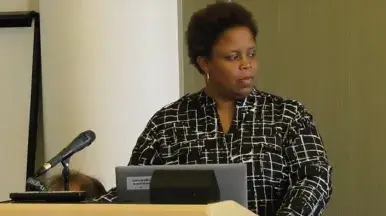PCIARC History & Overview
Established in 1993 and operating under a review-focused model, the PCIARC provides oversight, recommends dispositions and policy changes, and promotes accountability through community engagement.
CLICK HERE: To learn more about the PCIARC and its history.
A list of the active complaint intake centers is available on the PCIARC website.
CLICK HERE: To visit the PCIARC website
If your organization is interested in learning more about the PCIARC process and/or becoming a community complaint intake center, please contact the PCIARC Coordinator at CivilianReview@stpaul.gov or 651-266-8970. 
|
PCIARC Cases Reviewed
The following table shows cases reviewed by the PCIARC since the Commission moved to HREEO in 2017.
In 2022, the PCIARC began publishing the total number of complaints filed with IAU, the number sent to the PCIARC for review, and the reasons the other complaints were not sent to PCIARC for review. The following table provides a summary of those numbers. Additional information about why not all complaints received by IAU is reviewed by the PCIARC is available in the “2024 Complaints received by IAU” section later in this report.
2017 | 2018 | 2019 | 2020 | 2021 | 2022 | 2023 | 2024 | |
Cases Reviewed by PCIARC | 29 | 42 | 44 | 39 | 21 | 19 | 34 | 52 |
Total Sworn Officers | 54 | 70 | 72 | 81 | 26 | 32 | 66 | 97 |
Total Allegations | 63 | 77 | 88 | 90 | 26 | 37 | 88 | 124 |
Total Complaints Received by IAU
Year | 2022 | 2023 | 2024 |
Total Complaints | 54 | 15 | 39 |
To PCIARC | 91 | 44 | 47 |
Not to PCIARC | 103 | 60 | 43 |
Please note: While 60 of the complaints received by IAU in 2024 were designated as going to the PCIARC, some of them will be reviewed by the Commissioners in 2025.

